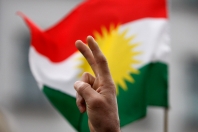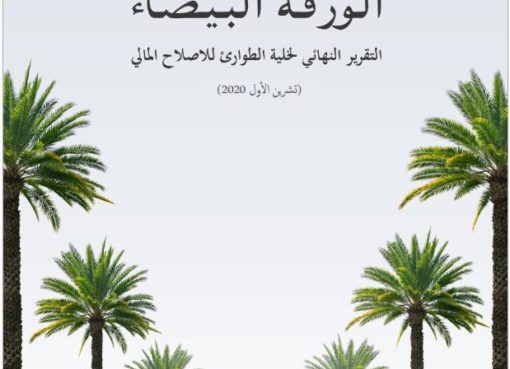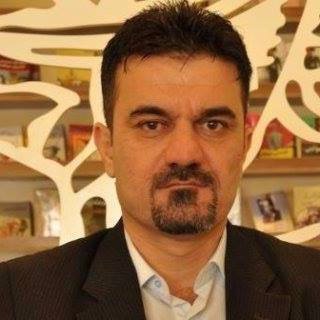Overall bilateral trade fundamentals are increasing despite sanctions
The cultural and economic connection between Mesopotamia and Russia goes back to centuries before the Middle Ages. But in the contemporary era, Soviet-Iraq relations were established in September 1944.
Despite the ups and downs of 1955 and the restoration of relations in 1958, Baghdad became one of the most important Soviet partners in the region. The occupation of Kuwait by Iraq in August 1990, the collapse of the Soviet Union, international sanctions, and the US invasion of Iraq in 2003 were important points in the two sides’ relations. Moscow cooperated with the new Iraqi government and played a role in its structural development from 2003 until 2011.
Political and Geopolitical Relations
Apart from the signing of the Treaty of Friendship and Cooperation between the Soviet Union and Iraq in April 1972, the agreement on commercial, economic, scientific, and technical cooperation in August 1993, the agreement on cooperation in the construction of facilities in the oil and gas industry in April 1995, and the debt settlement agreement in February 2008 have been parts of the mutual agreements in their relationship.
The joint economic commission of Iraq and Russia witnessed the signing of 16 cooperation agreements between the two countries in April 2019 in Baghdad.
An additional signing of 14 memorandums of understanding in 2020 in the oil and gas sectors, health and transportation, and the 9th commission for commercial, economic, and scientific cooperation between Russia and Iraq in August 2022 also helped to expand commercial ties.
In recent years, the presence of various delegations and officials of the two sides in the other country has continued. After Vladimir Putin’s recent meeting with Mohammad Shia al-Sudani during an official visit to Russia in October 2023, Moscow announced that it would invest about US$19 billion and expand cooperation.
As of February 2022, Iraq has refused to criticize Russia over the Ukraine situation, with Iraq’s balancing strategy continuing by supporting Russia-Ukraine peace talks. In 2024, the two countries will celebrate the 80th anniversary of diplomatic relations.
Iraq, with its sovereign development, considers the country’s interests in relations with Russia. Mohammad Shia al-Sudani paid attention to the strengthening of interaction and the development of excellent prospects in the economic fields and various opportunities ahead.
Russia, for its part, has paid special attention to the development of relations with the Kurdistan region of Iraq, implicitly contacting all parties and emphasizing the territorial integrity of Iraq.
In Russia’s 2023 Foreign Policy Concept, Moscow is paying attention to the development of relations with various regional trade blocs, opportunities for the development of global trade and investment, the balance of global power, the creation of a multipolar international system, and strengthening cooperation with Islamic countries.
Energy Cooperation
Energy is a key part of the relationship and energy contracts have become more strategic since 2017. Iraq’s oil and gas reserves and undeveloped oil and gas reserves are very attractive.
In the past years, with the progress in interactions, the withdrawal of large Western companies from Iraq, support for the activities of Russian oil and gas companies, and the purchase of shares, Russia has invested more than US$14 billion in Iraq. Russia is looking to expand its investment in Iraq to about US$45 billion by 2035.
While up to 96% of Iraq’s revenue comes from the sale of crude oil, reaching a record US$115 billion in 2022, Russia is one of the biggest players in Iraq’s oil and gas sector. Bilateral agreements are vital in increasing Iraqi production to 8 million barrels per day.
In addition, Russia and Iraq have signed new agreements aimed at increasing cooperation in the oil sector, including exploration projects, drilling, and gas flaring reduction. Luk Oil operates a large oil project in Qurna, located in Basra province. Recently, the contract for the development and production of Iraq’s Western Horn 2 oil field has been extended until 2045 with the aim of increasing production up to 800,000 barrels per day.
The presence of Gazprom in the Badra oil field in the Maysan and Garmian block is also important. Other Russian energy companies such as Zarubezhneft, Astrotranskaz, Tatneft, and Suezun Gas, are working to increase access to opportunities in Iraqi oil.
This year, Iraq’s Dhi Qar Oil Company signed a contract with Russia’s Luk Oil to set up the Eridu oil field. This will increase daily production from 30,000 to 250,000 barrels.
In 2017, Rosneft acquired 60% ownership of the Kirkuk-Ceyhan pipeline with a commitment to invest US$1.8 billion dollars.
There are other suggestions for Moscow regarding the Turkish-Syrian-Kirkuk oil pipelines, the revival of the Iraqi-Syrian pipeline, the gas pipeline from Kirkuk in northern Iraq to Europe, supplying Iraq’s domestic needs for electrical energy, and investing in the oil refinery in Mosul. On the other side, the OPEC+ agreement provides close cooperation and greater coordination of both countries with rich oil resources and common interests with the aim of maintaining stability in the global energy market.
Defense and Nuclear Cooperation
Previously, the main weapons of the Iraqi army were supplied by Russia, and Iraq is one of the major importers of Russian military weapons. Apart from arms deals in 2012, 2014, and 2017, plans for further arms and defense cooperation could help their mutual relationships.
Iraq’s previous reactors were made in the Soviet Union. Iraq had previously targetted the construction of 8 nuclear reactors to provide 25% of its electricity needs by 2030. After the International Atomic Energy Agency agreed to build a radiation-free reactor in Iraq, Baghdad is considering negotiating with Russian companies in this field.
Industrial Cooperation
For both countries, it is important to achieve national development goals, ensure economic security, increase non-resource and non-energy exports, and release economic potential in relations. About 50 Russian companies operate in Iraq. For example, a Russian consortium is implementing a large project to renovate and modernize a glass and ceramic products factory in Iraq’s Anbar province.
Food Security
Iraq imports 50% of its food. Due to food insecurity caused by the Ukraine conflict, Baghdad is increasingly looking to Russia as a partner to meet its annual goal of 4- 5 million tons of wheat.
Under the current unstable geopolitical conditions, Russia can increase its agricultural products and food sales to Iraq. The trade between Russia and Iraq in 2022 was affected by a significant increase in the purchase of sunflower oil, wheat flour, and animal feed. There is also potential for investment in modernizing agricultural practices, improving food security, and fostering sustainable agricultural development.
Transport and Infrastructure
According to the Prime Minister of Iraq, Baghdad wants Moscow to participate in the launch of the US$17 billion Iraq Development Road project, which would run 1,200 km from Turkey to Iraq’s Faw port in the Persian Gulf. Iraq has also recently joined the TIR convention.
Iraq and Russia also recently signed a maritime transport cooperation agreement with the aim of facilitating the passage of goods and passengers through seaports. Also, any efforts in infrastructure development, various infrastructure projects such as airport renovation, and urban development initiatives can help trade and increase the capacity of trade routes.
Russia and Iraq are additionally discussing multilateral cooperation in the North-South transport corridor. This summer, an air services agreement was signed between Iraq and Russia, which would be useful for strengthening the prospects of joint cooperation in the transport sector and developing the aviation situation of the two countries.
In addition to signing an agreement with Iraq to exempt holders of diplomatic passports, Russia is considering a visa-free access agreement with Iraq for tourists and businessmen.
Recently, the Iraqi Prime Minister said in Moscow that his country is ready to join the BRICS group if it receives an invitation from the founding countries. The probability of Moscow’s support for Iraq’s membership in BRICS has increased. According to some views, joining BRICS should be on Iraq’s agenda. From this point of view, Baghdad will benefit from this and will have access to loans and services of the New Development Bank.
Bilateral Trade
Before 2003, Russia was Iraq’s top trade partner. More recently, in 2022, the trade between the two sides increased by 43%.
In 2021, Russia exported US$283M to Iraq, including refined petroleum, sawn wood, and iron blocks. Iraq exported just US$50,000 to Russia, mainly tropical fruits.
However, the total trade income between Russia and Iraq in 8M January-August 2022 reached US$313.1 million. That represents a 43% increase if taken over the year. This positive dynamic was influenced by a significant increase in the volume of purchases of our sunflower oil, wheat flour, and animal feed meaning the overall trend is positive.
Russia – Iraq Vision
In 2023, Vladimir Putin emphasized the development of relations with Muslim countries, looking for new partners to promote agricultural and industrial cooperation, create transport and logistics chains, and establish close commercial and humanitarian cooperation with Islamic countries such as Iraq.
However, the strengthening of trade and investment relations between Russia and Iraq is accompanied by internal and external challenges, while the trade ranking of the two countries among major economic partners is relatively small.
The high security costs for Russian companies for doing business in Iraq (sometimes up to 25% of their annual budget) are a deterrent factor. Apart from the geopolitical tensions in the Middle East, occasional internal political disagreements and bureaucratic obstacles in Iraq are detrimental to trade with Russia. Also, the sanctions against Moscow, the American sanctions (CAATSA), and so on are an extensive trade barrier.
While the United States has rejected Iraq’s exemption from anti-Russian restrictions, one of the main issues between Moscow and Baghdad in 2023 is the payment mechanism to Russian companies and the expansion of relations despite the sanctions. In fact, it has become more difficult to settle financial accounts in international banks. Dialogue is ongoing to solve these, with a view to protect their mutual economic relations from sanctions. The possibility of Iraqi banks joining Russia’s MIR and SPFS financial services systems and the nature of de-dollarising currency transactions are also being investigated.
In the absence of strong financial infrastructure, exploring alternative financial mechanisms and strengthening financial infrastructure can facilitate trade. What is clear is that the existing commercial and economic potential has not been fully utilized and the perspective of commercial and economic relations between the two countries is tied to various bilateral and international geopolitical, political, security, and economic variables.
Iraq is looking to be open for international investments and the favorable price of oil in 2023 and into 2024 will help Iraq’s financial and external balance. Joint investments in the exploration, extraction, and distribution of energy resources are beneficial for both countries.
Holding events such as the importance of Islamic financing, and the establishment of Islamic banks, and paying attention to the issues of the Islamic economy and Halal industry, could also be important opportunities to pursue.
Other cooperation in agriculture, manufacturing, technology, and the growing diversity of commercial goods, indicate a transition from one-dimensional energy cooperation. Diversification of economic relations by extracting metals from significant deposits in Iraq can be considered by both sides.
Also, facilitating the granting of visas, direct flights, and more active business participation in exhibitions, the implementation of the joint commission in August 2022 in Moscow, increasing transparency, and simplifying processes can create a favorable environment for the expansion of trade and investment. Negotiating the growth of bilateral trade, reducing trade barriers, and simplifying communications, a Free Trade Agreement with the EAEU, and joint participation in multilateral infrastructure projects and corridors of regional transport projects are all useful pointers in the development of Russia-Iraqi bilateral trade.
Source: Russia Briefing, November 6, 2023
https://www.russia-briefing.com/news/russia-iraq-2023-24-trade-and-development.html/








Comment here